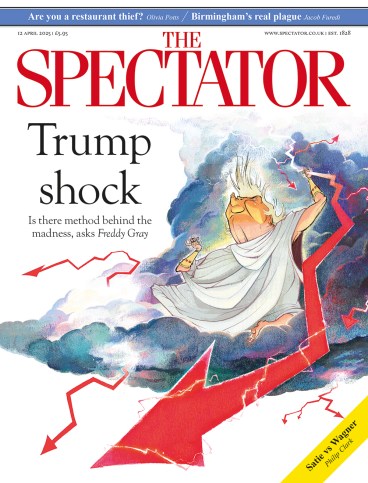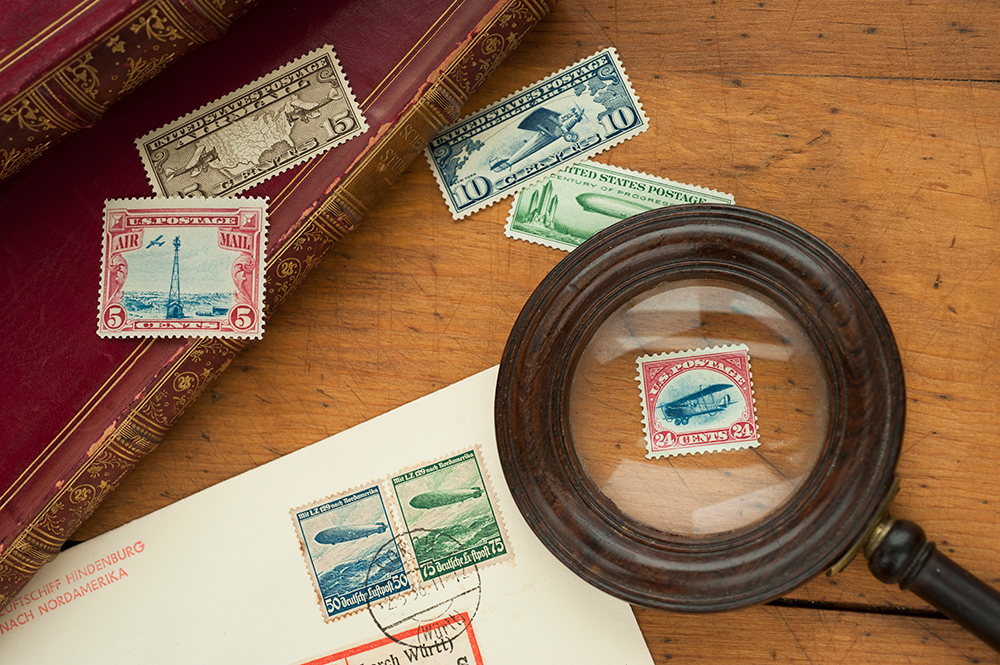
Robert Irwin – novelist, historian, reviewer and general all-round enthusiast and scholar of just about everything – died last year. It might seem odd that a man whose previous works included the definitive one-volume introduction to The Arabian Nights and a controversial critique in 2006 of Edward Said’s Orientalism – not to mention what is one of the great novels about Satanism, Satan Wants Me (1999) – should have spent his final years working on a book about stamp collecting.
But fear not. This is not some weird aberration in a career of weird aberrations; it is, in fact, another weird aberration. The Madman’s Guide to Stamp Collecting, Irwin announces in his first paragraph, ‘will be of little or no practical use or interest to stamp collectors’ – a declaration that serves as both a disclaimer and a challenge. If you’ve come here looking for advice on watermarks and perforations, walk away. The book does not deal with stamp collecting ‘practicalities’. Instead, the following topics are covered:
The Psychology and Psychopathology of Collecting; Seriality; Miniaturisation; Classification; Nostalgia; Anal Retentiveness; Specialisation; Fraudulence; Commemoration; Rarity; Completeness; Sexuality of Collecting; Secrecy and Subversion; Digressiveness; Boyhood; Dutchness; Boredom; Death.
So, not a manual for the aspiring philatelist but rather a philosophical disquisition on subjects of interest to Irwin, and indeed to anyone who’s ever experienced, say, boyhood, obsessions, boredom or desire. The stamps are merely the means by which the subject matter gets delivered.
Borrowing a phrase and an insight from the Polish writer Bruno Schulz, Irwin figures stamps as portals, tiny little paper ambassadors for ideas and for people and places that often no longer exist and for events long forgotten. So there are notes and remarks on, for example, Aby Warburg’s Mnemosyne project, Dennis Wheatley’s occult thrillers, the poems of Osip Mandelstam, and – at great length – praise for the work of the late Ciaran Carson, the consummate snapper-up of unconsidered trifles, whose great book The Star Factory (1997) provides Irwin with a kind of model for his own practices and procedures. ‘For me,’ he writes, ‘just the discovery of the writings of the Belfast poet and fiction writer Ciaran Carson has made this project worthwhile.’
Items pile up like stamps in a dealer’s stockbook. On one page we might get a passing remark about Frederick William of Prussia, who ‘collected a regiment of giant soldiers’ and who also ‘acquired women in the hope of breeding giants’. On another, there’s a discussion of the work of Ayn Rand, prompted by her article ‘Why I Like Stamp Collecting’, published in the Minkus Stamp Journal, in which she argues that stamp collecting ‘has the essential elements of a career, but transposed to a clearly delimited, intensely private world’. Then, suddenly, we have T.E. Lawrence’s role in the evolution of Arab stamp design, some stuff about Ellery Queen, and a description of the peculiar character of Iranian stamps: ‘Commonly they depict scenes of carnage, successful terrorism, imperialist outrages which must be avenged and glorious but bloody military triumphs.’ In arranging his remarks and thoughts about writers, artists and books, often only loosely linked by stamps, by cataloguing them and preserving them, Irwin not only describes but demonstrates the collector’s process of creating order out of chaos.
Iranian stamps depict imperial outrages which must be avenged and glorious but bloody military triumphs
The psychological dimensions of collecting receive, of course, due consideration, with Freud, Walter Benjamin and D.W. Winnicott all making their expected appearances, though frankly who cares about Freud and his ideas on anal retentiveness when you can simply luxuriate in a constant stream of Irwin’s wonderful asides: ‘Elizabeth David was informally associated with the Warburg Institute and she collected cookery books dating from the 17th century onwards, many of which she left to the Warburg library’; ‘By the way, useful information about the necessary procedures for issuing postage stamps, passports and flags and choosing a national emblem is obtainable from How to Start Your Own Country by Erwin S. Strauss.’
This is not to suggest that the book is all whimsy and flimsy. On the contrary: there are lots of rather serious and useful insights. Irwin is particularly good on the function of stamps in fiction – though he suggests that only two novelists have ever known much about stamps, Wheatley and David Benedictus, both of whom, he admits, ‘did not produce better novels as a result’. ‘Though stamps mostly play quite minor roles in novels, it is sometimes useful to focus on things that are marginal to the story’, because they ‘may tell us more about the author than swathes of passionate and high-spoken dialogue’.
Towards the book’s conclusion, we’re offered a glimpse of Irwin himself, the ‘would-be part-time hippy anarchist’ drifting from Oxford to London in the 1970s, and his progress towards acquiring a ‘truly weird mindset’. He was a bit of a stamp collector himself, in his youth, ‘but is there really a type?’ he asks. ‘Can one smell a stamp collector?’ The long list of stamp collectors that follows – including Freddie Mercury, John Lennon, Edward Said, Jacques Cousteau and Simon Wiesenthal – suggests not. Or perhaps it suggests that the type is simply ‘human’ and probably ‘male’, and possibly a little bit unusual.
I’ll admit that I shed a tear at the end of this, Irwin’s final work, recognising not just a fellow collector – of ideas, ephemera, stuff – but a fellow man emptying his pockets, as it were, at the end of a long life.








Comments